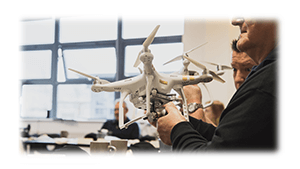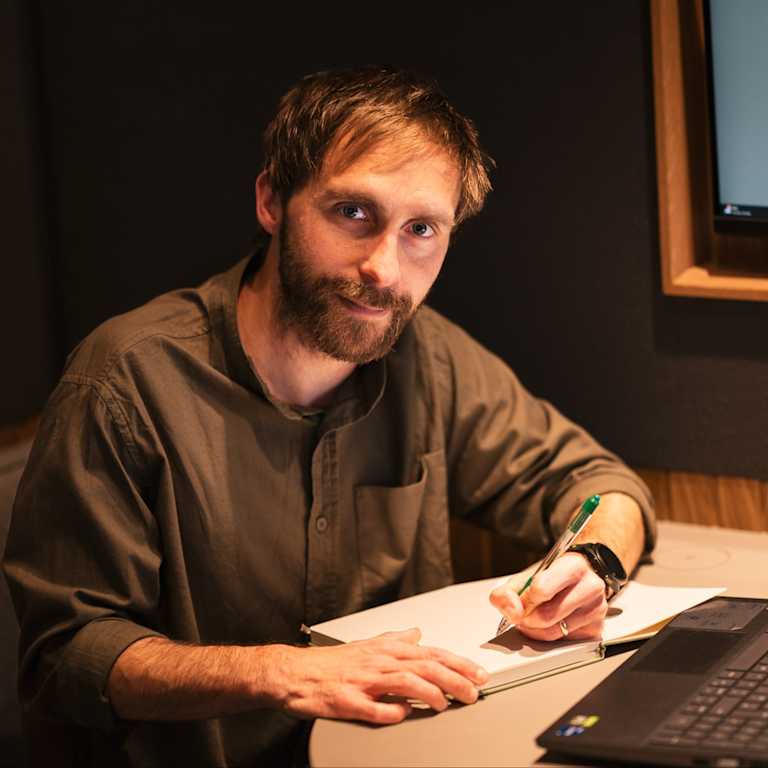
News
Published on 14 Apr 2016
James Willoughby
CAA PfCO Training Course: Farnborough
On the 19th April 2016, Heliguy are running our next CAA PFAW course at Farnborough, helping prospective drone pilots achieve their CPL-sU. ... Read More
Heliguy_CAA_Training_Farnborough-Blog_Header-1024x683.jpg Not long now until Heliguy is running our next CAA PfCO (Civil Aviation Authority Permission for Commercial Operation) course at the Elvetham Hotel in Farnborough. This is only one of the frequent training sessions being held in each of our three locations which also include Newcastle upon Tyne and Manchester. Heliguy’s highly-skilled staff are able to guide you through every step of becoming a qualified drone pilot. Our approach is unlike any course currently being offered in the UK. Providing hands-on training, a wide range of products and industry-leading support, we’re a full-service team of experts able to support your every drone need. Taking place across 3 days, our courses run from Tuesday morning to Friday afternoon (giving you plenty of time to get home for the weekend). See below for our upcoming training calendar: coursedate2017graphic.png
CAA PfCO Course Overview
Heliguy brings our entire training facility to each location, giving you access to the equipment and resources you require. We pride ourselves on delivering the same level of training with the same access to all necessary materials that trainees would receive in our Newcastle HQ. Heliguy_CAA_Training_Equipment.png Our expert staff are on-hand to make sure your learning experience is second to none. Able to answer any questions you may have regarding either the course, industry regulations or the drones themselves, you’re in the best hands when pursuing your Commercial Drone Operations Training (C-DOT) through Heliguy’s CAA PfCO course. See below for a day-to-day overview of what you can expect to achieve during our training:
Day One

By the end of day one, you’ll know your IMU from your EMCs, the difference between Course Lock and Home Lock, which drone suits you and how to fly it correctly and safely. You’ll also learn the importance of airspace and aviation charts as well as being provided with an explanation of Air Law and airspace. There are also in-depth sessions on Airmanship and the Human Factors of aviation.
Day Two
After taking a look at human factors, we move onto the Operations Manual, a document that every commercial drone business needs. It contains health and safety information as well as managerial and technical procedures specific to how you plan to operate. This is followed by risk assessments as well as pre-flight and on-site surveys and procedures.

Day Three

We begin with a planning exercise and a discussion about weather patterns before moving on to the theory exam (75% pass mark). Should you fail, re-sits are free but you must wait for ten days. Once you've passed the Ground School, you take the Pilot Practical Assessment before completing the Ops Manual. You will then be able to secure a PfCO from the CAA as a form of drone licence.
Operations Manual
Your Operations Manual is a key document that should be very carefully thought through and should be regularly used and updated in line with expedience and the evolution of your business. The document consists of three sections: the nature of your business, what you are flying and risk mitigation. Heliguy_CAA_Training_Ops_Manual-1.png You will be taught about each section in the ground school. Our staff will provide the support needed to allow you to create clear and efficient documentation to present to the CAA. Acting as a resource and providing relevant tech specifications for equipment, we help guide you through every step of the process.
Flight Assessments
The Practical Assessment will normally take place within 4-6 weeks of completing the theory course but timing is dependent on good weather. You'll need to allow 2-3 hours for the test. The assessment is designed to check your flight planning, safety skills and piloting ability. You'll be given an assignment which you'll have to research as you would for a normal commercial job. After being provided with the brief you'll be expected to check the weather, flight charts, NOTAMS and if necessary contact Air Traffic Control before you leave for the location. Once you arrive, you'll need to conduct a site survey and risk assessment. When it comes to flying, you'll need to successfully carry out the assignment while preparing for a couple of simulated emergencies. For example, it could be a loss of transmission or another aircraft entering your flying area. You'll then have to carry out simple manoeuvres in two different flight modes - GPS and ATTI. It's definitely worth practising with ATTI mode, not just for the test, but also to improve your overall skill as a pilot. For aerial filming, proficiency with ATTI can be vital when you're trying to achieve smooth shots.
Farnborough - The Elvetham Hotel
As previously mentioned, our next training course is taking place in Farnborough, Heliguy's southern training venue. With competitively priced accommodation in a stunning setting, our Farnborough course takes place at the beautiful Elvetham Hotel, combining top quality training with a breath-taking location. Trainees don’t have to worry about commuting back and forward from the sessions as they are all carried out on-site just a short walk from the well-appointed rooms and a dining hall which provides a hearty breakfast to fuel you for the day ahead. 29FFE8C9-B244-4C2D-AF09-F37224875A2F.jpg Interested in attending a CAA-approved, 3-day course at our Farnborough venue? Book your place here.
Other Locations
Aside from Farnborough, we currently offer training at two other locations: our Newcastle upon Tyne HQ and the Mercure Norton Grange Hotel in Rochdale, Greater Manchester. Attending our C-DOT course at any of our locations comes with a guarantee that you'll receive the same level of quality, access to expert training staff and in-depth knowledge from the Heliguy team.
Newcastle upon Tyne - Heliguy HQ
Based in the Orion Business Park, this training course takes place onsite at Heliguy headquarters. As well as being coached by the training team, our sales staff are available to give advice on everything from accessories and add-ons to the latest models. This means that you can buy new equipment in between sessions and have it to take away at the end of the course. Our tech team is also on hand to help with any problem you might be having. If it's something simple, we may even be able to fix it while you're here. IMG_7516-3.jpg
Manchester - Shrigley Hall Hotel
Our central UK location is the beautiful Shrigley Hall Hotel. The location is very simple to reach from Manchester, with accessibility from Macclesfield train station, the M6 motorway and Manchester Airport. Set in the glorious surroundings of the Peak District, it’s a wonderful place to train. The venue also provides free WiFi and refreshments helping to make the course even more enjoyable. IMG_1412.jpg Want to attend a comprehensive CAA PfCO training course run by our expert team in one of these locations? Book a place now.
An Unrivalled Experience
Heliguy is committed to providing unbeatable training for drone pilots. Approved by the CAA as a National Qualified Entity (NQE), we provide everything you need to gain your C-DOT and to become a confident, fully qualified multi-rotor aviator. We have taken a unique approach to our training strategy. While we cover all of the important components on the NQE syllabus, we also offer a level of experience-led industry guidance to prospective UAV pilots that are unavailable elsewhere. Joel Ross, Managing Director of Heliguy, explains the success of our training program:
"Having experienced ground school courses with other established NQEs it was clear that the instructors came from a manned aviation background, with many who had not even flown an off-the-shelf commercial UAV." "There were examples throughout the course referring to military type drones and scenarios, that are less relevant to the operating environment of small commercial UAVs. These same NQEs had limited industry knowledge as to what Sub 20kg UAV operators actually required. This is something we addressed as a priority in our course material."
Heliguy's CAA PfCO course brings machine-specific knowledge that is just not evident with other training courses. We deal in a lot of DJI equipment so expect to see the Inspire and Phantom series amongst others during your training, all tied into the principals we teach on the CAA syllabus. It's vitally important that the course is relevant to the type of environment the business will be operating in and the types of machines they will be using. Heliguy’s expert staff are always available to advise you, whether it’s about accessories and add-ons, or what the best new model is. We can also advise you about any relevant insurance policies while you are with us, a crucial requirement for any commercial venture.
Why Choose Us?
With years of experience in the industry; first, with RC Helicopters in 2008, all the way through to cutting-edge drone technology; no one has our exclusive perspective and insider knowledge. Based in Newcastle upon Tyne, we have extensive experience in leading workshops and training courses around the UK to help get you started in the rapidly expanding drone marketplace. We’re passionate about what we do and care about ensuring the best possible outcome for trainees. A retail background and experience providing exceptional customer service feeds directly into our training, you can always rely on us to resolve any issues promptly and efficiently. Most importantly, passing with Heliguy will mean you are qualified to begin your application to the CAA. Our drone training course has an incredibly high success rate, with the vast majority of candidates leaving us with their qualification. pfcocert-1.png
What to Expect
You'll get to see a number of drones and multi-rotors up close during the training course and be given all the information you need to operate them safely. Heliguy is NQE recognised which entitles us to train and examine drone pilots who want to become commercial operators and to use their aircraft for business purposes. There’s also the opportunity to learn all about your legal responsibilities in relation to flying drones in the UK. This is crucial to prevent you getting into difficult conversations as you begin to expand your commercial UAS activities.
Maintaining Quality
Our original plan was to have a large number of locations across the UK but we came to realise that this would be detrimental to the quality of our training at each centre. Dedicating ourselves to providing the best possible experience for both our trainees and our training team has allowed us to begin looking towards the development of a greater range of first-rate courses. This decision to focus on a smaller number of locales ensures our ability to maintain the sky-high standards we hold ourselves to.
Course Costs
We offer competitively priced training, providing you with the knowledge and practical ability you need to achieve your PfCO. Visit our Drone Training page to find out more. Contact us to discuss payment options as 0% finance is currently available.
Get in Touch
Call us to find out more from people that have sat the course, know it inside out and can guide you in choosing the correct equipment. We're available from Mon-Fri, 9-5pm and offer a consistent level of service and support not offered by our competitors. Heliguy_CAA_Training_Phone_Support_v3.png So, if you’re looking for the most comprehensive training available in the UK, run by a company with years of experience in the field and approved by the Civil Aviation Authority as an NQE, get in touch with us today to book your place on any of our upcoming courses. To learn more, get in touch with our team for more information.
FAQs
How do I sign up for the CAA PfCO course? Contact us for a discussion on pricing and what types of course we offer. What actions are required to gain my permission? Completion of the ground school and practical assessment prove you have the required knowledge base. Creating a thorough, well-thought-out Operations Manual demonstrates that you have safe systems in place to carry out the proposed activity. If you meet the practical criteria and it is deemed that your Ops Manual is up to standard, the CAA will issue you a PfCO. What do I need to complete my flight test? To complete the flight test you will need to sit and pass the C-DOT ground school, complete Volume 1 and 2 of the Operations Manual and have appropriate insurance in place. We also recommend that you take the time to learn your Ops Manual and emergency procedures inside out as this is what you will be assessed against. What do I need to do to complete my Operations Manual? To complete your Ops Manual, you need to display that you're fully aware of the environment, type of work, equipment and available resources to prove you understand and comply with the CAA's UAV regulations. In order to be fit for purpose, your Ops Manual requires regular updates and additions as you implement your UAV offering. The Heliguy Operations Manual framework covers the following three criteria:
The nature of your business
What you are flying
Risk mitigation
What insurance is needed? Your insurance needs to meet EC 785/2004 for commercial use. For your flight test, there are some companies that will do one-day policies including BFMA DDD (this is covered within the training course). If you’re unsure about insurance, speak to a member of Heliguy's staff. What is the average time before the permission is received? Our record is 28 days but the average time is between 2 to 3 months. However, this is all down to the work put in by the candidate. What does the permission cover? This permission allows you to operate commercially as a drone pilot subject to all pertinent rules and regulations. What happens if I fail the ground exam? You are entitled to a free resit which you will be able to take after 10 days. What peripherals do I need to fly responsibly? We train you how and when to use a range of equipment including a spectrum analyser, an anemometer, LiPo bags, cones, a landing pad, hi-vis clothing, sunglasses, signs and an extinguisher.
